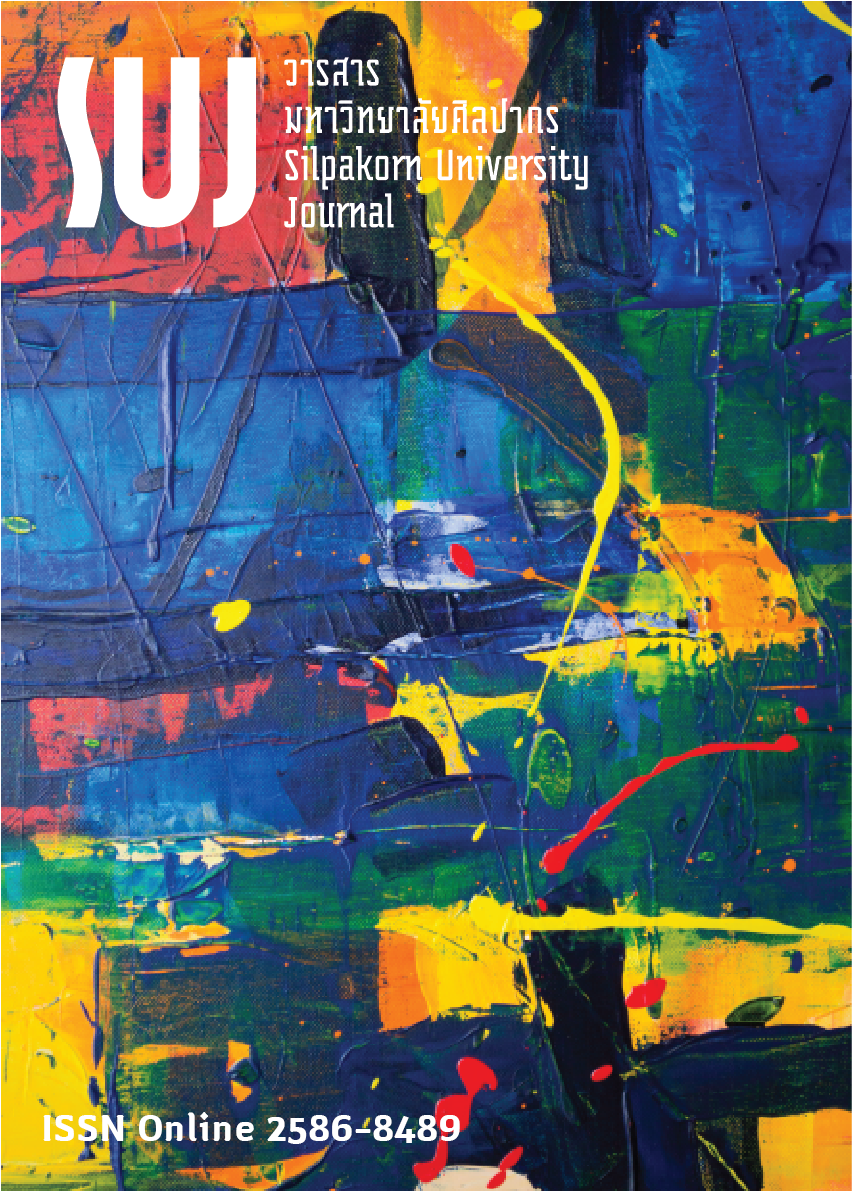ประสบการณ์พิสุทธิ์แท้ : จุดกำเนิดปรัชญาญี่ปุ่นสมัยใหม่ของนิชิดะ คิตะโร (Truly pure experience : The origin of modern Japanese philosophy of Nishida Kitaro)
Main Article Content
Abstract
นิชิดะ คิตะโร ได้รับการยกย่องให้เป็นบิดาแห่งปรัชญาญี่ปุ่นสมัยใหม่ และเป็นผู้มีคุณูปการสูงสุดในประวัติศาสตร์ปรัชญาญี่ปุ่น บทความนี้มีความมุ่งหมายที่จะนำเสนอ ประสบการณ์พิสุทธิ์แท้ ที่เป็นมโนทัศน์แรกสุดของนิชิดะ อีกทั้งเป็นจุดกำเนิดปรัชญาญี่ปุ่นสมัยใหม่ และกลายเป็นรากฐานให้แก่นักปรัชญาในกลุ่มสำนักเกียวโตต่อมา ทั้งนี้ จากผลการศึกษาได้ทำให้พบว่า ประสบการณ์พิสุทธิ์แท้ คือ ประสบการณ์ที่ไม่มีการแบ่งแยกอัตวิสัยหรือภววิสัย เพราะเป็นประสบการณ์ดั้งเดิม ที่มีเอกภาพเป็นหนึ่งเดียวกับความสำนึกรู้ก่อนความคิด นอกจากนี้ การศึกษามโนทัศน์แรกสุดของนิชิดะ ยังเป็นประโยชน์ต่อการนำไปสู่ความเข้าใจมโนทัศน์อื่น ๆ ในปรัชญาของนิชิดะ
Nishida Kitaro is regarded as the father of modern Japanese philosophy. He is the greatest contributor to the Japanese philosophy in the history. The objective of this article is to present the truly pure experience, which is Nishida’s the first conception, the origin of modern Japanese philosophy, and subsequently the groundwork for the philosophers in the circle of the Kyoto School. The results indicate that the truly pure experience is the state of experience when subjectivity is not distinguishable from objectivity because that state is not only human’s original experience but also the unity of awareness, which is a priori of thought. Furthermore, it can be concluded that the first conception of Nishida is useful for understanding the other conceptions in the philosophy of Nishida.
Article Details
References
Carter, R. E. (1997). The Nothingness Beyond God : An Introduction to the Philosophy of Nishida Kitaro. 2nd ed. Minnesota: Paragon House.
Carter, R. E. (2013). The Kyoto School : An Introduction. Albany: State University of New York Press.
Dumoulin, H. (1989). Zen Enlightenment : Origins and Meaning. (J. C. Maraldo, Trans.). 5th ed. New York: Weatherhill.
Heisig, J. W. (2001). Philosophers of Nothingness : An Essay on the Kyoto School. Honolulu: University of Hawaii Press.
Heisig, J. W., Kasulis, T. P. and Maraldo, J. C. (Eds.). (2011). Japanese Philosophy: A Sourcebook. Honolulu: University of Hawaii Press.
Jansen, M. B. (Ed.). (1972). Changing Japanese Attitudes Toward Modernization. 3rd ed. New Jersey: Princeton University Press.
Nishida, K. (1999). Nishida Kitaro Complete Collection (Vol.1) An Inquiry into The Good : Thinking and Experience (西田幾多郎全集〈第一巻〉善の研究・思索と体験). 86th ed. Tokyo: Iwanami Shoten.
Nishida, K. (2004). Nishida Kitaro Complete Collection (Vol.2 : New Edition) Intuition and Reflection in Self-Awareness : The Problem of Awareness (西田幾多郎全集〈第二巻・新版〉自覚に於ける直観と反省・意識の問題). Tokyo: Iwanami Shoten.
Wakabayashi, B. T. (Ed.). (1998). Modern Japanese Thought. New York: Cambridge University Press.
Wilkinson, R. (2009). Nishida and Western Philosophy. Cornwall: Ashgate.

